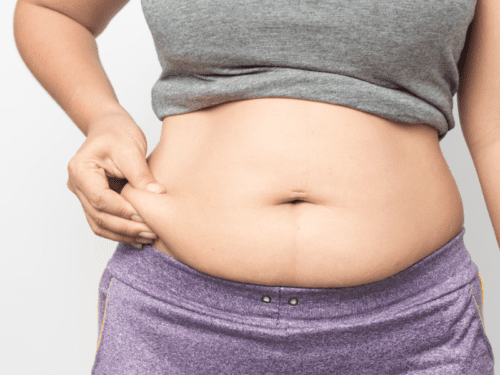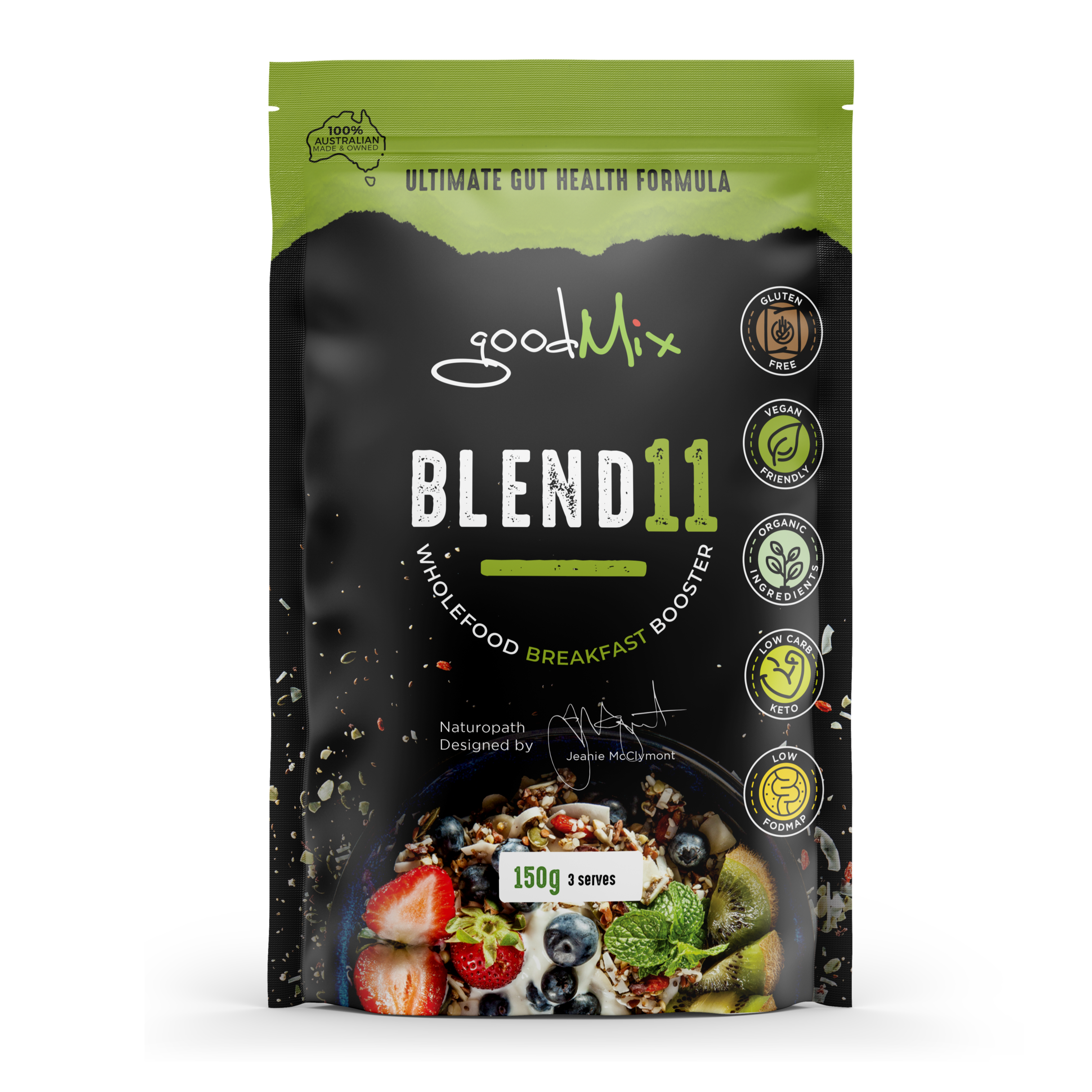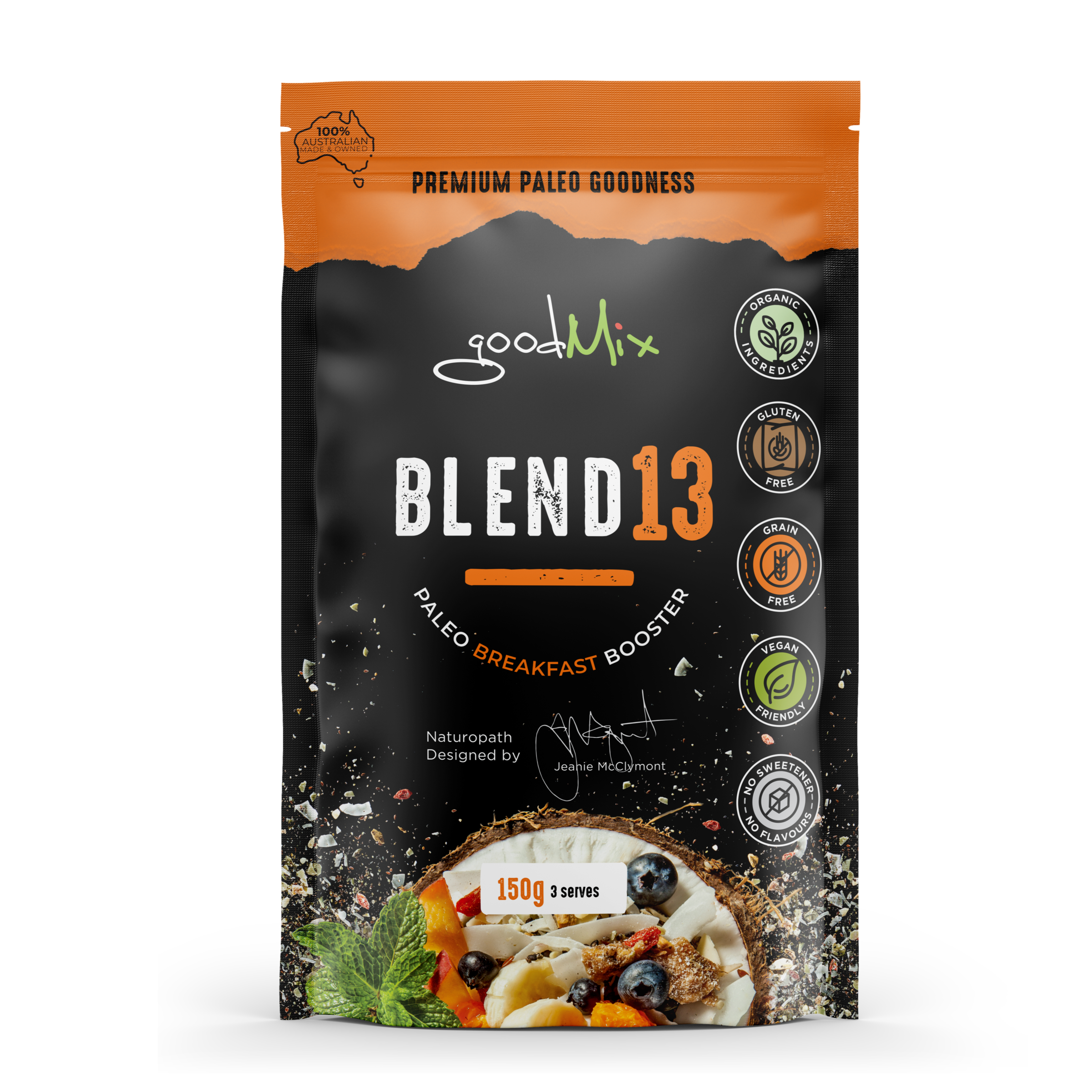
Improve Your Insulin Sensitivity & Lose the Belly Fat!
Insulin sensitivity is something you need to know about if you struggle with your weight & nothing seems to work for you. What causes insulin resistance and how do you reverse it to help manage your weight and belly fat?
What is Insulin?
Insulin is a hormone that gets glucose out of your bloodstream & into your cells so you can use it for fuel, or store it for later use. When you are insulin resistant though, this system doesn’t work properly & glucose tends to just get placed into long-term storage (fat). The more fat you have stored already - the more insulin resistant you become, a very annoying cycle affecting many Australians today, which can ultimately prove fatal. When you think insulin, you first think diabetes. But you should also be thinking: muscles and fat, weight loss and energy.What Is Insulin Resistance?
When your body senses high blood glucose (ie after eating) insulin release is triggered (to get the glucose out of your bloodstream & into your cells for burning). If you're eating loads of carbs all the time, your cells become less & less sensitive to insulin (it's just always there), so you end up with constantly high blood sugar & high insulin, because your cells aren't letting the sugar in to burn it. You are ‘resistant’ to the normal effect of insulin, no longer sensitive to its action. This is a bad situation - you'll put on fat, lose muscle & feel tired & cranky too. Feeling like you might already be insulin resistant? (Don’t worry - it’s not just you, there are millions of other Aussies in the same boat).What Causes Insulin Resistance?
In short - the main 'cause' of our insulin resistance epidemic is our modern diet & lifestyle (detail later). So how do you reverse insulin resistance and become more 'insulin sensitive’ again (without giving up cars, computers, washing machines etc)? Morning / Fasted exercise: After a night of rest & repair, a morning exercise session will use up all of your left-over stored energy very quickly, & will force you to then rely on fat as a fuel source. Walk fast, or jog slowly (or dance / do weights - whatever) for 40-60 mins each morning (or as many mornings as you can, on an empty stomach. If you can't exercise in the morning at all, try doing a gym session anytime of the day (with weights / resistance training) that will burn through all of your stored glucose, giving you an empty tank like when you wake up - & then do your 40-60min walk / jog / lower intensity cardio. You'll get waaayyy more fat-burning bang for your exercise buck. If you're looking at what causes insulin resistance, you can't ignore a lack of exercise as a big factor! Exercise really is the best way to become more insulin-sensitive, as muscle contractions increase the glucose receptors on your cell walls - allowing more sugar in to be utilised as energy (instead of it just ending up going into storage as fat). Increase muscle mass & burn some fat: The more muscle you have, the better your blood glucose metabolism will be. Muscle is so important for fat loss, even when you are asleep your lean muscle mass will be burning through fats for you. Diabetics / prediabetics should read bodybuilding manuals, the info would help immensely (just ignore the fake tan & body oil sections)! Good fats: You need omega 3's to make your cell walls work properly, if you're still eating bad fats (ie margarine / chips / biscuits / ’vegetable oil' trans fats etc - your cell membranes won't be working properly (things like glucose can't get in easily to be utilised by the cells). Eat plenty of omega 3 fats, or take them in a supplement form if you hate fish. Only eat grass-fed animal products, avoid anything grain-fed. Watch the Carbs / try Intermittent Fasting: Decrease them (by a lot), so you give yourself a break from the constant carb overloads & insulin secretion. Trial intermittent fasting - if it feels good for your body, eat only ‘good carbs’, like berries & veggies, legumes, nuts & seeds. Less food (esp carbs) means less insulin secretion, which will mean you get more sensitive to it again over time (then you may be able to relax a little with your diet again). Fibre: Use fibre to slow the release of carbs. Ie if you're going to eat cake, have some nuts with it! Choose the carrot cake with walnuts, the bun with most seeds (or if you really want to get well - just back away from the bakery)! Focus on quality fat, fibre & protein & you will improve your insulin sensitivity (provided you're also challenging your muscles enough). Stress Management When we experience stress (& cortisol release), it causes our blood sugar to go up. This is very useful if the stress is caused by something chasing us (we can run faster), but not good if we're sitting at our desk, stressed by a work deadline or relationship issue. Obviously, if you're stressed & running away, you burn the glucose, if you're stressed & sitting...you'll need more insulin to lower your blood sugar. Most of us are under too much stress (raising our cortisol, blood sugar & insulin constantly),so our body becomes desensitised & just tunes out. This is how prolonged stress can cause / contribute to insulin resistance. And (so sorry)...caffeine will also contribute to this stress response, so minimise your intake if you're serious about improving insulin sensitivity. You'll sleep better too - also crucial for healthy blood glucose metabolism. Easy stress management = use one of the guided meditations available through You Tube - just find one & commit to 1 or 2 sessions a day - it will be life changing (& belly shrinking)! Sunshine Vitamin D is crucial for insulin sensitivity, maintaining lean muscle mass, strength, athletic performance, fat burning…along with so many other things! Looking fat in your bikini may actually be the best reason to get down to the beach in it (or just start on your balcony). Healthy glow, NOT burn is the aim! Gut Health Gut health cannot be overlooked when treating metabolic dysfunction - it can play a huge role in insulin resistance. Your gut bugs influence your levels of inflammation, your metabolism, how likely you are to crave certain foods, how you extract calories from them, & how your blood sugar reacts to what you eat. Obesity and diabetes can be “transferred” from one group of mice to the other simply by altering their gut flora. Wowsers - choose your flatmates wisely?? Some human cases of this transfer have actually been observed with FMT therapy (where human gut bacteria is transferred from one person directly to another). Blend11, our low carb, Low-FODMAP, breakfast booster (although it can be eaten any time of day!) has developed a great reputation for helping people wanting to support healthy, comfortable digestion & metabolism. It’s gluten-free, vegan-friendly, keto-friendly, diabetic-friendly, IBS-friendly … basically it can be enjoyed by most people! Smoking: Smoking will make you insulin resistant, & also the people around you breathing it in. Your smoking could also be making your spouse and kids fat (add fat to the list of smelly, sick, broke...do people really still smoke??) If you do - you CAN quit, there is plenty of support available, & you know life will be better once you do. Sleep: Bad sleep will make you insulin resistant - if you’re serious about fixing your metabolism, you must prioritise sleep. Do not underestimate the power of quality sleep to heal you, & poor sleep to make you chronically unwell.Some easy things to try that can help with sugar metabolism (get advice from your practitioner):
- fish oil
- apple cider vinegar
- magnesium
- protein powder
- fenugreek
- cinnamon
- aloe vera
- turmeric
- probiotics
- prebiotics




